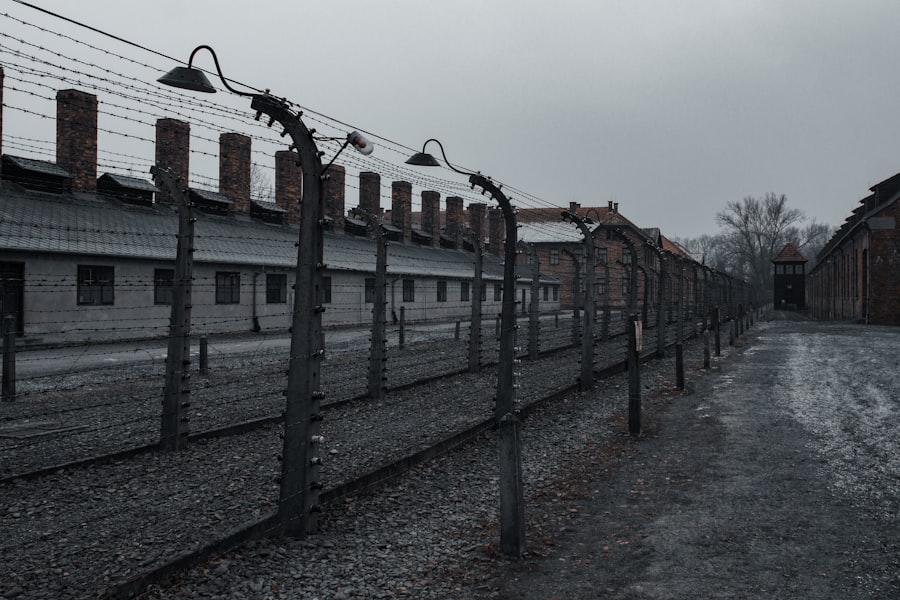The rise of Nazi agents in the United States during the 1930s and early 1940s marked a significant chapter in the history of espionage and national security. As Adolf Hitler’s regime gained power in Germany, it became increasingly aggressive in its foreign policy, seeking to expand its influence beyond Europe. This expansionist ideology prompted the establishment of a network of agents and sympathizers who operated covertly within the United States.
These agents aimed to gather intelligence, promote Nazi propaganda, and undermine American interests, all while capitalizing on the political and social climate of the time. The presence of Nazi agents was facilitated by a combination of factors, including widespread anti-communism sentiments, economic instability, and isolationist attitudes prevalent among the American populace. Many Americans were unaware of the true nature of the Nazi regime, viewing it through a lens of fascination or misunderstanding.
This naivety allowed Nazi operatives to blend into society, often posing as ordinary citizens while pursuing their nefarious objectives. As tensions escalated in Europe, the activities of these agents became increasingly alarming, prompting concerns about national security and the potential for sabotage.
Key Takeaways
- Nazi agents rose in the United States through infiltration and recruitment tactics.
- Nazi sympathizers played a significant role in aiding infiltration and espionage activities.
- Nazi infiltration had a significant impact on American security.
- Counterintelligence efforts were implemented to combat Nazi agents in the United States.
- Lessons learned from Nazi infiltration are crucial for national security against the continued threat of foreign agents.
Infiltration and Recruitment Tactics Used by Nazi Agents
Nazi agents employed a variety of infiltration and recruitment tactics to establish their presence in the United States. One of the most effective methods was leveraging existing social and political organizations that aligned with their ideology. By infiltrating groups such as German-American societies, they could gain access to influential individuals and spread their propaganda more effectively.
These organizations often provided a cover for agents to operate under the guise of cultural exchange or community engagement, making it difficult for authorities to detect their true intentions. In addition to infiltrating established organizations, Nazi agents also utilized personal connections to recruit sympathizers. They targeted individuals who were disillusioned with the American government or who held anti-Semitic views, appealing to their grievances and offering a sense of belonging within a larger ideological framework.
This recruitment strategy not only expanded their network but also created a sense of loyalty among recruits, who were often willing to engage in espionage activities out of conviction or misguided patriotism.
Nazi Espionage Activities in the United States

The espionage activities conducted by Nazi agents in the United States were diverse and far-reaching. They included gathering intelligence on military installations, industrial capabilities, and political developments. Agents often focused on key industries that were vital to the war effort, such as aviation and munitions manufacturing.
By obtaining sensitive information about American production capabilities, Nazi operatives aimed to undermine the United States’ ability to respond effectively to threats posed by Germany and its allies. Moreover, these agents engaged in sabotage operations designed to disrupt American infrastructure. Instances of arson, bombings, and other forms of sabotage were reported, targeting factories and transportation networks critical to wartime logistics.
The goal was not only to inflict damage but also to instill fear and uncertainty within the American populace. Such activities highlighted the lengths to which Nazi agents were willing to go in order to achieve their objectives, raising alarms among law enforcement and intelligence agencies.
The Role of Nazi Sympathizers in Aiding Infiltration
| Nazi Sympathizers | Aiding Infiltration |
|---|---|
| Number of sympathizers | Unknown |
| Methods of aid | Providing shelter, false documents, and intelligence |
| Impact on infiltration | Facilitated the movement of Nazi agents and spies |
| Consequences | Contributed to the success of Nazi infiltration operations |
Nazi sympathizers played a crucial role in facilitating the infiltration of Nazi agents into American society. These individuals often provided logistical support, financial resources, and safe havens for operatives seeking to carry out their missions. Many sympathizers were motivated by ideological alignment with Nazi principles or by a desire to see America adopt a more isolationist stance in global affairs.
Their support created an environment in which Nazi agents could operate with relative impunity. The presence of sympathizers also complicated efforts by law enforcement agencies to identify and apprehend Nazi operatives. With a network of individuals willing to assist them, agents could evade detection more easily.
This complicity extended beyond mere support; some sympathizers actively participated in espionage activities themselves, further blurring the lines between loyalty to their country and allegiance to a foreign power. The intertwining of these networks made it increasingly challenging for authorities to dismantle the Nazi presence within the United States.
The Impact of Nazi Infiltration on American Security
The infiltration of Nazi agents had profound implications for American security during a critical period in history. As World War II loomed on the horizon, the threat posed by these operatives raised urgent questions about national preparedness and defense strategies. The realization that foreign agents were actively working within American borders prompted a reevaluation of intelligence-gathering methods and counterintelligence measures.
Law enforcement agencies recognized that they needed to enhance their capabilities to identify and neutralize threats before they could inflict significant damage. Moreover, the impact of Nazi infiltration extended beyond immediate security concerns; it also influenced public perception and policy decisions. The fear of espionage and sabotage contributed to a climate of suspicion that affected various communities, particularly those with ties to Germany or Europe.
The repercussions of this infiltration thus rippled through society, shaping both national security policies and social dynamics.
Counterintelligence Efforts to Combat Nazi Agents

In response to the growing threat posed by Nazi agents, American intelligence agencies implemented a range of counterintelligence efforts aimed at thwarting their activities. The establishment of organizations such as the Office of Strategic Services (OSS) marked a significant step in coordinating intelligence operations and enhancing national security measures. The OSS focused on gathering information about enemy activities while also conducting covert operations designed to disrupt enemy plans.
One key aspect of these counterintelligence efforts was the development of surveillance techniques aimed at identifying potential threats within American society. Law enforcement agencies began monitoring known sympathizers and organizations suspected of harboring Nazi operatives. This proactive approach allowed authorities to gather intelligence on suspicious activities while also fostering collaboration between federal and local law enforcement agencies.
As a result, several plots were foiled before they could come to fruition, demonstrating the effectiveness of these counterintelligence measures.
Notable Cases of Nazi Espionage in the United States
Several notable cases of Nazi espionage in the United States exemplify the challenges faced by authorities during this tumultuous period. One such case involved a group known as “The Duquesne Spy Ring,” which was responsible for gathering intelligence on American military operations and industrial capabilities. Comprised of over thirty members, this ring operated across multiple states and successfully infiltrated various industries critical to the war effort before being apprehended by federal agents in 1941.
Another significant case involved German saboteurs who landed on American shores with plans to carry out acts of sabotage against key infrastructure targets. Known as “Operation Pastorius,” this operation aimed to disrupt American production capabilities through coordinated attacks on factories and transportation networks.
The Legacy of Nazi Infiltration in the United States
The legacy of Nazi infiltration in the United States is multifaceted, leaving an indelible mark on both national security policies and societal attitudes toward foreign influence. In the aftermath of World War II, there was a heightened awareness of the need for robust intelligence-gathering capabilities and counterintelligence measures. The experiences gained from combating Nazi espionage informed future strategies for addressing threats posed by foreign agents, leading to significant reforms within intelligence agencies.
Additionally, the legacy extends beyond policy changes; it also shaped public discourse around issues of loyalty, patriotism, and national security. The fear generated by Nazi infiltration contributed to an environment where suspicion toward certain communities persisted long after the war ended. This legacy serves as a reminder of the delicate balance between safeguarding national security and upholding civil liberties—a challenge that continues to resonate in contemporary discussions about foreign influence and espionage.
The Aftermath of Nazi Infiltration and Espionage
In the aftermath of Nazi infiltration and espionage activities, American society underwent significant changes as it grappled with the implications of these events. The end of World War II brought about a sense of relief but also left lingering questions about how such threats could have been allowed to flourish within its borders. Investigations into past intelligence failures led to calls for greater transparency and accountability within government agencies tasked with protecting national security.
Moreover, the experiences gained from confronting Nazi espionage laid the groundwork for future counterintelligence efforts during subsequent conflicts such as the Cold War. Lessons learned from this period informed strategies for identifying and neutralizing threats posed by foreign adversaries, emphasizing the importance of vigilance in an increasingly interconnected world. The legacy of these efforts continues to shape contemporary approaches to national security.
Lessons Learned from Nazi Infiltration for National Security
The lessons learned from Nazi infiltration during World War II remain relevant today as nations confront evolving threats from foreign agents. One key takeaway is the necessity for robust intelligence-sharing mechanisms among various government agencies at local, state, and federal levels. Effective communication can enhance situational awareness and facilitate timely responses to emerging threats.
Additionally, fostering public awareness about potential risks associated with foreign influence is crucial for maintaining national security. Educating citizens about recognizing suspicious activities can empower communities to play an active role in safeguarding their own security while also promoting vigilance against misinformation campaigns that may seek to exploit societal divisions.
The Continued Threat of Foreign Agents in the United States
As history has shown, foreign agents continue to pose a significant threat to national security in the United States. While the tactics employed may have evolved over time—shifting from traditional espionage methods to cyber warfare or disinformation campaigns—the underlying goal remains consistent: undermining American interests from within. The lessons learned from past experiences with Nazi infiltration serve as a reminder that vigilance is essential in addressing these ongoing challenges.
In an era marked by globalization and technological advancements, foreign influence can manifest in various forms that are often difficult to detect. As such, maintaining robust counterintelligence efforts is paramount for safeguarding national security while also ensuring that civil liberties are respected. The legacy of past infiltrations underscores the importance of remaining alert against potential threats while fostering an informed citizenry capable of recognizing signs of foreign interference in their communities.
During World War II, the presence of Nazi agents in the United States posed a significant threat to national security, as they engaged in espionage and attempted to undermine the Allied war effort. These covert operations were part of a broader strategy by the Axis powers to destabilize the United States from within. For a deeper understanding of the historical context and the impact of these espionage activities, you can explore a related article on the topic by visiting In The War Room. This resource provides valuable insights into the clandestine operations and the counterintelligence efforts that were crucial in safeguarding the nation during this tumultuous period.
WATCH THIS! 😱The Nazi Trial America Never Wanted You To See 😱
FAQs
What were Nazi agents in the United States?
Nazi agents in the United States were individuals who were sent by the Nazi regime in Germany to gather intelligence, conduct espionage, and carry out sabotage activities within the United States during World War II.
How did Nazi agents operate in the United States?
Nazi agents operated in the United States by infiltrating communities, establishing cover identities, and gathering information on military installations, industrial facilities, and other strategic targets. They also sought to recruit sympathizers and conduct acts of sabotage.
What were the goals of Nazi agents in the United States?
The goals of Nazi agents in the United States included gathering intelligence on military and industrial targets, disrupting American war efforts, and spreading propaganda to undermine public morale and support for the war.
How were Nazi agents identified and apprehended in the United States?
Nazi agents in the United States were identified and apprehended through the efforts of counterintelligence agencies such as the FBI and the Office of Strategic Services (OSS). These agencies conducted extensive surveillance, investigations, and sting operations to uncover and neutralize Nazi espionage activities.
What were the consequences for Nazi agents caught in the United States?
Nazi agents caught in the United States faced prosecution under the Espionage Act and other relevant laws. Many were convicted and sentenced to prison, while others were deported back to Germany after the war. Some Nazi agents were also executed for their espionage and sabotage activities.




